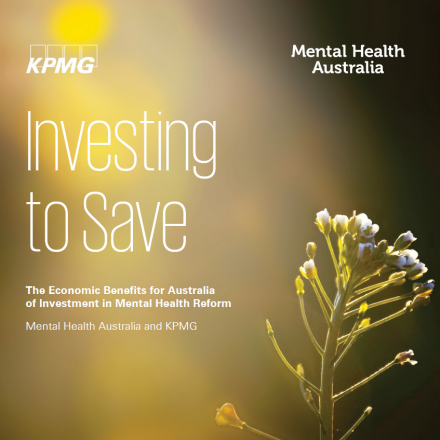Inclusive practice critical in mental health and suicide prevention initiatives
 Article by the National LGBTI Health Alliance
Article by the National LGBTI Health Alliance
Many organisations have a growing awareness of the important role that inclusive practice plays in the efficacy of their mental health and suicide prevention initiatives. There is widespread enthusiasm for developing services that can respond deliberately to a diversity of bodies, genders, sexualities, and relationships. In this context, understanding the specific needs of lesbian, gay, bisexual, trans, and intersex (LGBTI) people becomes critical to positive health outcomes.
Most LGBTI people live healthy, happy lives, however a disproportionate number of these people experience worse mental health outcomes than their non-LGBTI peers. This is especially true for experiences of depression, anxiety and suicidality with the mental health of LGBTI people being amongst the poorest, and rates of suicidality the highest, of any population in Australia.
This disproportionate representation is not a result of any internal or innate deficit that LGBTI people share, but rather is a result of a range of particular experiences and stresses that are common in their lives. While there have been many legal, social, and cultural changes that have made it easier for LGBTI people to live contributing lives – experiences of discrimination, marginalisation, prejudice, exclusion, rejection, violence and abuse are still common.
It is important to remember that ‘LGBTI’ is a strategic acronym, and that it does not refer to a single homogenous community. Five letters cannot encapsulate the incredible diversity of bodies, genders, sexualities, and relationships in our communities. Within this diversity, some populations are more vulnerable to stigma and discrimination and experience this in different ways that in turn impacts on their mental health in different ways. Consequently some groups in the LGBTI acronym are even more over-represented in mental health statistics. This is particularly true for transgender people, bisexual people (especially bisexual women), older gay men or people with intersex variations.
Even those who have grown up with supportive family and friends are likely to have experienced some degree of discrimination or prejudice, some of which is very explicit and some of which is very subtle and even possibly unintentional. These experiences, which for some are daily and from places that are traditionally seen as providing support (such as school, family, religious institutions), can lead to emotional distress, shame, isolation, lack of confidence, or trauma.
Unfortunately LGBTI people experience a range of barriers that impact on their ability to access mental health services and receive the type of support that they need. These can include heterosexism (the assumption that all people are heterosexual), fear about negative reactions to disclosure and not seeing themselves represented in health promotion messages. Upon disclosure many also experience structural discrimination, exclusion and discomfort from the mental health services to which they turn in times of need.
Many organisations also attempt to ‘treat everyone the same’ and think that by doing so they are accessible to LGBTI people. However this framework doesn’t do anything to address the many barriers that stop LGBTI people from accessing services or acknowledge the impact of the lived experience on their mental health. This can be due to a lack of awareness that LGBTI people exist in their services, a lack of knowledge about LGBTI people or a lack of understanding about how being part of an LGBTI population group impacts on mental health and recovery.
These policies can result in LGBTI people being invisible in mental health services, in turn resulting in fewer support systems, less confidence in accessing support or clients choosing to hide their identity and experiences from service providers.
The National LGBTI Health Alliance is working to address the mental health outcomes of LGBTI people through the facilitation of ‘MindOUT!’ a National LGBTI Mental Health and Suicide Prevention Project and ‘QLife’ a national LGBTI telephone and web based counselling service.
MindOUT! is the first national LGBTI mental health and suicide prevention program of its kind that supports mainstream providers to increase their capacity to be culturally appropriate and responsive to LGBTI people. This is achieved through providing access to professional development, developing mental health resources, and establishing networks and linkages between the LGBTI and mainstream mental health sectors.
Since beginning this project, we have been really encouraged by how much interest there has been from the mainstream mental health sector with many wanting to work with LGBTI people better but who often do not how to go about this. We have seen organisations establish a firm commitment to LGBTI inclusion and who are now working hard to create changes in their workplace to be more accessible to LGBTI people.
QLife Australia was formed with the aim to create a sustainable way to support, to empower and to build the capacity of LGBTI people, their friends and their families. QLife provides a service that is free, confidential and peer based, being delivered by large numbers of volunteers and staff across the country.
Since it began in mid 2013, the QLife Australia collaboration has joined the resources of five separate organisations into a single service project and has become Australia’s leading provider of expert LGBTI counselling and referral. The service is open 365 days a year from 5:30pm - 10:30pm, and no matter where in Australia people are from can be reached on 1800 184 527 or through qlife.org.au.
MindOUT! and QLife are funded by the Federal Department of Health
__________
Do you have a comment on this story? Join the conversation on Twitter @AUMentalHealth


 Article by the
Article by the 

